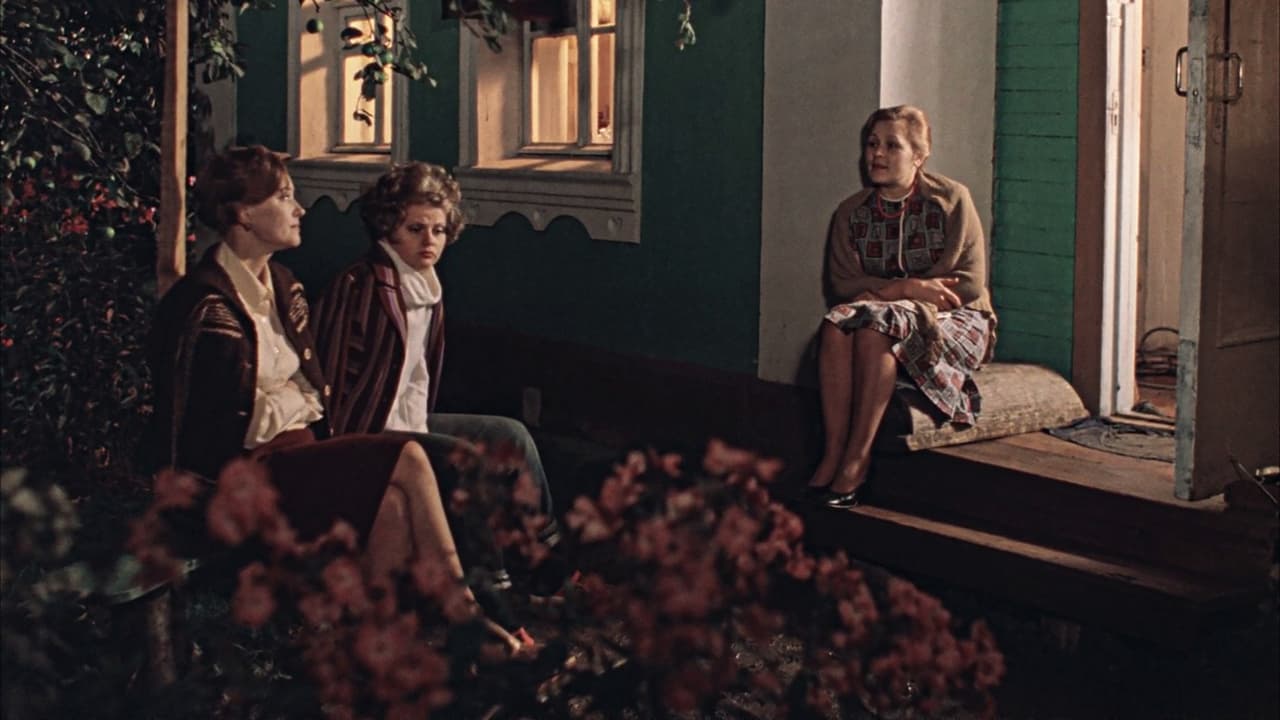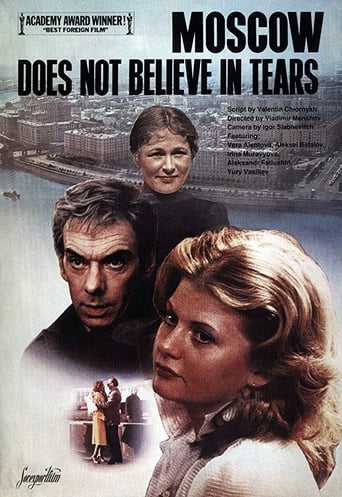

Some things I liked some I did not.
... View MoreExcellent and certainly provocative... If nothing else, the film is a real conversation starter.
... View MoreWhile it is a pity that the story wasn't told with more visual finesse, this is trivial compared to our real-world problems. It takes a good movie to put that into perspective.
... View MoreThis is ultimately a movie about the very bad things that can happen when we don't address our unease, when we just try to brush it off, whether that's to fit in or to preserve our self-image.
... View MoreThis won the Best Foreign Film Academy Award and it has received a lot of very high plaudits here. I didn't like it quite as much as would justify all that enthusiasm -- but I did like it.It's a sweet story, touchingly told, with very good acting from all involved. Because it's presented in two parts which, when combined, make for a fairly long movie, it has time not only to follow its characters but to develop themes -- prominent being that of the loneliness of people in the big city and the sometimes unwise things they do to relieve it.Because of the wise scope it moves slowly, but that and the effective device of setting in two distant times allows for the payoff of some affecting moments in the second half. While it's nominally a drama-comedy, it means more on the side of drama, and sometimes feels almost novelist in its wide scope. It was also interesting to see how it addressed various aspects of the social implications of the introduction of television and the social effects of income disparity in the two times. But overall personally I found myself more appreciative than enthusiastic.
... View MoreI did not love "Moscow Does Not Believe in Tears" but did like it and appreciate it. I am confused, however, that it is apparently the second biggest Russian film ever according to IMDb--it didn't seem THAT good. Regardless, it's a film where the second half if MUCH better than the first and so my advice is to stick with it--it's worth the lengthy running time.The film begins in 1958. Three women share a tiny single room in a dormitory for folks working lower-paying jobs. Two of the ladies take a vacation, of sorts, to a nice fashionable apartment--they are apartment sitting. During this time, they make a fateful decision--they pretend that they are higher-class ladies. Soon they attract a couple men who think they are professional ladies--not women from blue-collar jobs. When one of them, Katia, becomes pregnant and her working-class roots are exposed, the man refuses to marry her and they go their separate ways.About 20 years pass. Katia has a daughter and she never has married. Her prospects for love are bleak--especially since she now has risen way up the ranks and it's even harder for a successful career woman to attract a man. What will happen next? Tune in and see.Overall, this is a very good film that unfolds VERY slowly. It's a film you've just gotta stick with, as the acting and eventually the story pay off. Worth seeing...but the second highest grossing Russian film?!
... View MoreThis may be the first Russian movie I saw that did not end tragically. There were the normal problems of living in Moscow, particularly for the 3 young women trying to make it under very difficult circumstances. The things they do (particularly Lyudmilla) are funny and yet give us a glimpse into how difficult it must have been for them. Katya, the main character, goes through her trials but comes out on top. She does better than anyone else (out of the 3), even raises a daughter (without a husband), but she secretly longs for a man in her life. After many failed attempts are relationships she accidentally meets the man who turns out to be the perfect one for her. However, they too go through some struggles before coming to the final realization that they belong together. It is a wonderful story of struggles, successes, and life in general. The acting was wonderful, particularly the actress who played Katya. Her young daughter (Alexandra) was adorable. The scene I liked the most was Gosha invites Katya and her daughter to a picnic, to get to know each other better (after declaring that he is going to marry Katya). Katya is tired and she just falls asleep in a chair in the fresh air. Gosha gently puts a blanket on her. Very simple, but very caring and touching. There are many wonderful moments in the movie. The humor is sprinkled throughout and it is very refreshing to see a movie like this one. The most valuable thing to me was it gave a glimpse into life in the USSR, and yet we can relate to the story and the characters on a human level.
... View MoreLoved by both Russian and western audience alike,this film has often been regarded as entertaining romantic comedy and nothing more. Still,it,s a timeless story about love,friendship and the pursuit of happiness. It is the story of three girls who leave in 1957 their hometown somewhere in the remote Russian countryside for Moscow,to study and,above all,to find professional and personal fulfillment. One of them finds her happiness in marriage,another lives an ill-fated love story with famous hockey-player who eventually ends up as an alcoholic,but the most touching is the story of Katia,who,seduced and abandoned,pregnant and thrown out of university has the courage to raise her child all by her self,becoming,in twenty years,from a penniless unskilled laborer the manager of an important factory(the woman of career is almost an obsession of Soviet cinema,Katia being a sort of modern day Ninotchka). Nevertheless,in spite of her professional success,Katia is lacking,what almost every successful woman lacks:true love. As the film is a happy one,she finally meets a cultivated and good-looking worker(a propagandistic&proletarian bias)excellently acted by the brilliant and attractive Andrej Batalow,this man becoming more than simple infatuation to her,being devoted,caring and protective like a husband(even if they aren't married). All in all,the story is credibly optimistic,the actresses are extremely good-looking,the settings are elegant and the language witty and picturesque-in the Russian way,that is. Therefore,worth watching.
... View More